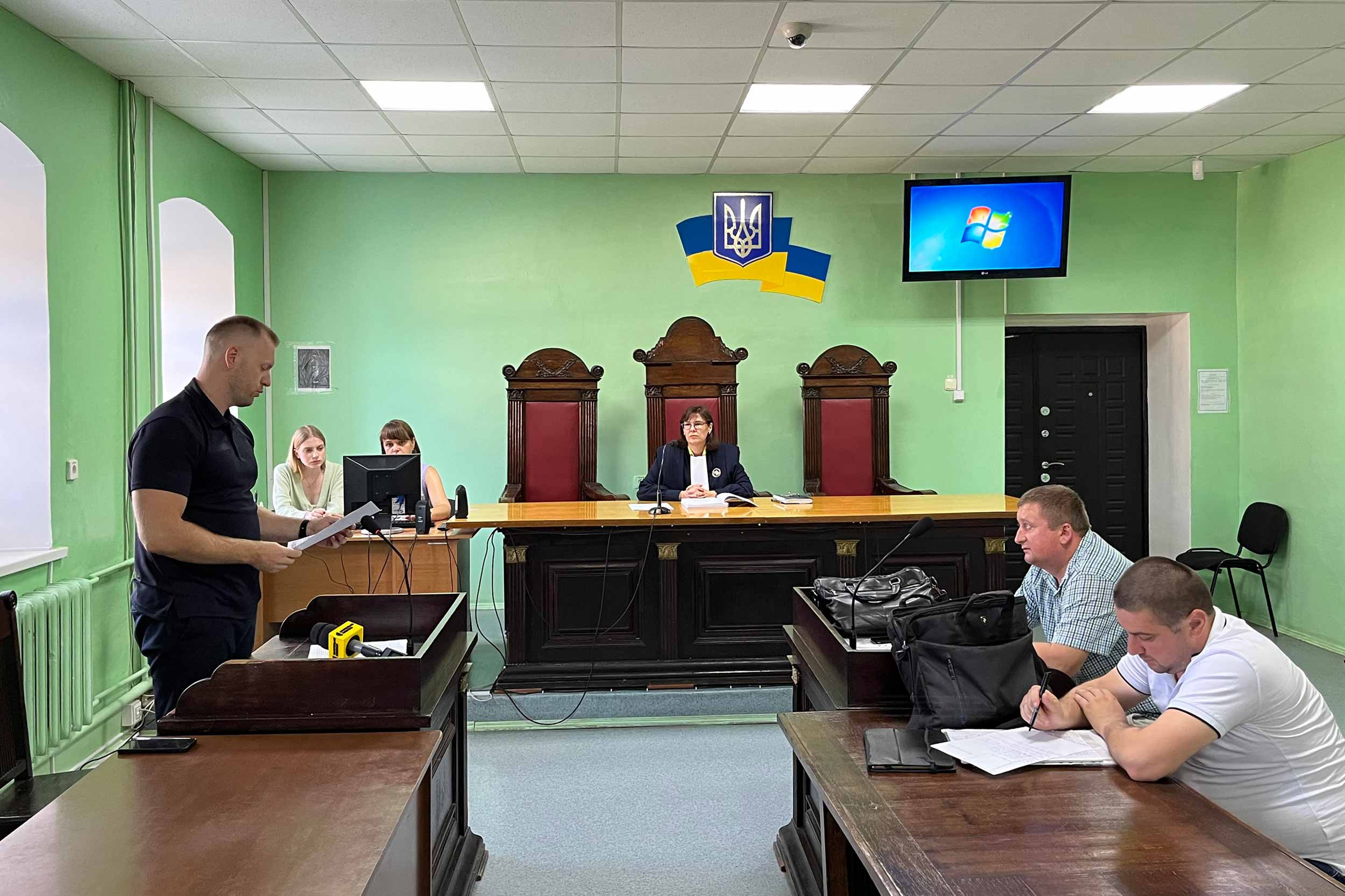Yahidne: “Let the World Know”
Hundreds of villagers were crammed into a cellar to serve as “human shields” for the Russian forces.
The Chernihiv district court has begun hearing how nearly 400 civilians were allegedly held hostage by Russian soldiers for nearly a month in a school basement and forced to endure appalling conditions.
Russian troops occupied the village of Yahidne, 15 kilometres south of Chernihiv, at the beginning of March 2022.
According to prosecutor Serhiy Krupko, Russian soldiers then forced 368 civilians, including 69 children, into the basement of the school building. The youngest child was only six weeks old.
Russian soldiers guarded the exit from the basement so that no-one could leave.
"People were forced to go to the toilet, relieve their needs in buckets and do it in the presence of other people,” the prosecutor read in the indictment. “The buckets filled with feces stood for a long time in the same premises where the people were, until the Russian military allowed them to be removed, which was an insult to human dignity and psychological torture of the victims.”
Adults and children alike were held in the 197.6 square metre basement in dark, overcrowded, unsanitary conditions, without access to air, medicine, adequate food and water, from March 3 to 30.
According to the investigation, ten civilians aged from 70 and 92 years died between March 9 to 28.
A total of 15 Russian soldiers are accused of war crimes, having been identified by the victims. All of them are from the city of Kyzil, Republic of Tyva, Russian Federation. They are Amir Kendenov, Buyan Dorzhu, Arzhaan Saaya, Vitaly Mongush, Sain Kenden, Dorzhu Demir-ool, Sholban Dambar-ool, Buyan Dadar-ool, Oleksiy Borisov, Sayan Khomushku, Arian Khertek, Eres Oorzhak, Nazity Mongush, Aigarim Mongush and Siin -ool Suvan.
According to the Ukrainian investigation, these 15 soldiers were the perpetrators of the crime, and they acted under orders: they forcibly drove people to the basement with threats and under escort in order to use the civilian population of Yahidne as human shields.
If they are found guilty under part 1 of Art 28, Article 438 of the criminal code concerning the violation of the laws and customs of war - cruel treatment of the civilian population, committed by a group of persons - they face from eight to 12 years of imprisonment.

According to the investigation, accused soldier Dadar-ool also went down to the basement on the evening of March 9 and violently molested a woman. Her fellow villagers prevented further sexual violence.
The prosecution believes that the command post of the Russian armed forces was located upstairs in the school building, with the presence of civilians supposed to ensure that the headquarters would not be destroyed by the Ukrainian military.
Russian armoured vehicles were dug in around the perimetre of the schoolyard, and communication systems were installed.
Investigators are now working to identify the commanders of the accused. According to preliminary findings, there were three of them, nicknamed Spider, Maple and Deaf.
As the Russian soldiers did not respond to summons, the court gave permission for a special trial and began considering the case in absentia. Prosecutors believe that the accused have left the territory of Ukraine and may currently be in the Russian Federation.
At the hearing on August 3, the court decided to first examine the written and material evidence and then question the victims.
Two lawyers for the accused, appointed by the free legal aid centre, agreed to this order of consideration, in view of the questions for the victims that may arise after the examination of the evidence.
The next meeting is scheduled for September 5.
“LET PEOPLE KNOW”
Yahidne resident Ivan, who was held in the basement together with his family and most of the other villagers, showed IWPR around the site on August 3, the day of the court hearing.
"Let people watch, let the whole world know," the 63-year-old said, opening the door to the basement. The retired nursery school superintendent now guards the site, which officials plan to turn into a museum of Russian war crimes.
Ivan explained that the space had been totally dark and bitterly cold during their captivity in March.
"Malnutrition, everyone was nervous, there was not enough oxygen,” he continued. “We were practically naked, it was stuffy, there were a lot of people. Each person had only half a metre of space.”
A Russian newspaper about the goals of the "military special operation in Ukraine" was still lying in the basement, alongside boxes of army rations and chewing gum wrappers. Ivan said that the Russian soldiers occasionally gave children sweets or biscuits and took a picture of their supposed generosity" for propaganda purposes.
The Russians also told the prisoners that Kyiv and other cities had been captured and that Ukraine had surrendered.
Shining a torch on the walls, Ivan revealed children's drawings, the handwritten national anthem of Ukraine and a calendar for March 2022. Next to it were the dates and names of captured civilians who had died in the cellar.
"We already knew that someone would not live until evening or morning,” he recalled. “They went crazy before they died.”
The bodies of the dead lay among the living as the Russian soldiers did not allow them to be buried or taken out of the basement. Later, Ivan said, the corpses were stored in the boiler room, located nearby on the school grounds.
"People slept standing and sitting, people's legs swelled, the skin cracked, veins cracked, and the legs festered. If it were two more weeks, 50 per cent would still be there and would not have come out [alive]," Ivan said.
Survivors of the ordeal said that their health had been permanently damaged, and in the year after their release 15 reportedly died.
